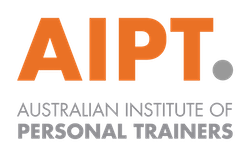Nail the ‘What Is Your Greatest Strength?’ Question in an Interview

During a job interview, there are particular questions that are standard across the board, no matter what industry area you’ve applied for.
A hiring manager will tend to drop the question ‘What is your greatest strength?’, to gauge what qualities and skills you have that will help you to thrive in the position, while also showing them what may be problematic (all depending on the answer that you provide).
Below is an ultimate guide on how to tackle that question that catches many of us off-guard and is a tiny bit arrogant – from how to identify your strengths, to how to structure your answers for the big day, here is everything you need to make a really great impression on your recruiter.
Evaluate your strengths
When it comes to boasting about what exactly makes you the perfect candidate, you need to identify your strengths, then draw correlations between them and the specific job that you are applying for. It is important to note that the job search is not a ‘cut-and-paste’ process; you need to research what is it that your recruiter is looking for, and how you can fulfil these expectations through strengths such as your personality, knowledge-based skills and soft skills.
Before you attend your interview, it is worth making a list for each of these elements that describes you, both personally and professionally:
Knowledge-Based or ‘Hard’ Skills
These are learnt from education and experience, such as:
- A degree or certificate
- Computer skills
- Proficiency in a program
- Language
- Overall technical ability
Soft Skills
These are transferable skills that you can adapt and apply many jobs, such as:
- Teamwork
- Good communication
- Analytical and problem-solving
- Time management abilities
- Working well under pressure
Personality Traits
These are your own qualities and interpersonal skills, such as:
- Dependable
- Friendly
- Honesty
- Flexibility
- Strong work ethic
Generally speaking, the selection criteria found in the job listing for the applied position can provide you with hints for what your potential employer is looking for. Once you’ve compiled a list for these three categories, select a couple of options from each category that best fit the contents of the job listing. From there, you can build of these qualities and draw on specific examples that demonstrate these qualities in action.
STAR Method
Once you’ve established the groundwork for your strengths, you can then move onto crafting your answers. Of course, you won’t know for sure what you are going to be asked in an interview, however it is still great to prepare an outline of what you’d like to say.
A great way to do this is by employing the STAR Method technique, as it breaks down your answer into a simple step-by-step process that is very clear and concise. This technique is also great to use for just about any situational question that may be asked in an interview.
Example response using the STAR Method:
-
Situation
Role as Project Manager at Company X
-
Task
Within this role, I was responsible for mediating team conflicts; ensuring that they were all resolved in a positive and effective manner
-
Action
When confronted with any conflict issues, all problems were handled right away and kept in line with business protocol
-
Result
With my management, small conflicts were kept under control, and lines of communication were drastically improved between team members
List of strengths that are favoured by employers and how to actively illustrate them
Communication
-
Both oral and written communication skills are imperative for just about any position. No matter if your work requires you chatting to clients on the daily with many presentations scattered in between, or if your line of communication is a simple email from time to time and general conversations with colleagues, this skill is always significant in the workplace.
-
It is important to note that this particular skill will be analysed from the get-go. From when you submit your application, to that first chat with your recruiter over the phone, to the interviewing process – if you make particular note that your communication skills are exceptional, you better prove it!
-
To really make sure you own this skill, you must take good care with your application. Ensure that you’ve reread and proofread your writing, and have included all of the necessary aspects that were required according to the job listing.
-
When it comes to the interviewing process, your hiring manager will be keeping a close eye on not only how you interact with them, but also how you interact with others around you.
-
In the interview itself, your recruiter will want to see if you can successfully engage with people. Depending on the position you’ve applied for, you may want to be more specific on how your communication skills will apply directly to the position.
Key communication sub-skills
- Listening
- Nonverbal communication
- Respect
- Confidence
- Public speaking
- Storytelling
- Overall friendliness
Sample Answer
‘What is your greatest strength?’
Using a customer service role as an example:
‘My greatest strength is my ability to communicate efficiently. Particularly within a customer service space where the customer is the foundation of the industry, it is greatly important that all of their needs are met and I feel that communication is the heart of this.
For example, in my last position as a customer service assistant in retail, I encountered a disgruntled customer that has been sent in the wrong direction to find a particular item. I approached her in a friendly manner and offered my assistance, in which she shared what had happened and her frustration.
I listened sympathetically to what she had to say, then responded to her concerns by offering to lead her to the item she was looking for. From this particular experience and many others that are similar, I have developed a really strong ability to communicate well, and pride myself on my capability to do so.’
Teamwork
-
Majority of job roles require teamwork in one way or another. The ability to work well and effectively with others is one sought after by many recruiters.
-
They will be interested to know how exactly you worked as part of a team, along with how you might manage one if the role you are applying for is a leadership one.
-
This one is a bit difficult to actively demonstrate during an interview, however you can still show your recruiter some general traits that are seen in those who can effectively work within a team.
-
Demonstrating your confidence throughout the course of the interview, then reiterating this quality when asked about your strengths can really solidify your ability to teamwork.
Key teamwork sub-skills
- Dependability
- Management
- Respect
- Motivating team members
- Providing constructive criticism
- Strategic planning
- Conflict resolution
Sample Answer
‘What is your greatest strength?’
Using a Project Manager role as an example:
My greatest strength is my ability to work effectively within a team. My ability to collaborate well, motivate my team mates to perform, deal with difficult personalities and mediate disagreements have all come together to make me an exceptional project manager.
From my understanding, this job involves a large amount of team projects. To put my strength into context, in one circumstance I was in charge of a large project with a team of 10 members. A disagreement, followed by a heated verbal argument was had between two members. Instead of panicking or making any impulsive decisions, I remained calm and pulled the two aside to discuss what exactly the problem was. Both members were able to freely express themselves with my supervision, and in turn the disagreement was resolved.
From this experience and many other similar situations, I have learnt great techniques to manage a team, and pride myself on my ability to do so.
Analytics
-
Analytical skills essentially encompass the notion of ‘critical thinking’ – it is the ability to analyse information and data, along with complex problem solving and making decisions.
-
Depending on the role you are applying for, the degree of experience in analytics will vary – you should be able to establish how significant this strength is to the position by looking over the selection criteria in the job listing.
-
Employers value analytical strength; the ability to investigate a problem and determine a solution in an efficient and timely approach is a transferrable skill that can be adapted to almost any position.
-
To actively demonstrate your analytical skills throughout the course of the interview, try to demonstrate clear, logical steps when answering questions. The ability to identify an issue and understand it from all perspectives before implementing an action clearly illustrates an individual who is equipped with exceptional analytical skills.
Key analytics sub-skills
- Data analysis
- Logical thinking
- Research
- Solution-oriented
- Complex problem solving
- Efficiency
- Evaluation
Sample Answer
‘What is your greatest strength?’
Using a Marketing and Data Analyst role as an example:
My greatest strength would be my strong analytical skills. I’ve put them to use in a wide range of scenarios in my past roles, but one example is when I was required to do market research for a previous position. After putting a process in place to collect relevant data, I collated this data and then proceeded to analyse it in a detailed and systematic way, that actually determined that we were in fact targeting the wrong target market.
From my findings, we were able to redirect out efforts in a way that was more suited to this newfound information, and in turn produced greater results.
With all of this information, you should now be equipped with everything you need to nail your next interview. Good luck and all the best!







